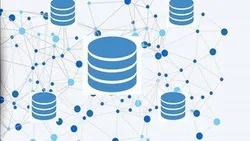
Foundations of Document Databases with MongoDB 
This course provides an introduction to document databases, such as MongoDB, and how to use them to create, read, update, and delete (CRUD) data. Through demonstrations, learners will gain an understanding of the fundamentals of document databases and how to use them. ▼
ADVERTISEMENT
Course Feature
![]() Cost:
Cost:
Free Trial
![]() Provider:
Provider:
Pluralsight
![]() Certificate:
Certificate:
No Information
![]() Language:
Language:
English
![]() Start Date:
Start Date:
Self Paced
Course Overview
❗The content presented here is sourced directly from Pluralsight platform. For comprehensive course details, including enrollment information, simply click on the 'Go to class' link on our website.
Updated in [March 06th, 2023]
Foundations of Document Databases with MongoDB: Unlock the Exciting World of Learning! Here's What Awaits You: Learners can explore the differences between document databases and relational SQL databases, understand why MongoDB is a great choice for data storage, and gain an understanding of how to get started with MongoDB. They will also learn how to use MongoDB efficiently and effectively, and gain an understanding of the development direction related to document databases. With this course, learners can gain the knowledge and skills to confidently use MongoDB and other document databases in their projects.
[Applications]
After completing this course, students will have a better understanding of document databases and how they differ from relational SQL databases. They will be able to identify the advantages of using MongoDB and have a better idea of how to get started with it. Additionally, they will have a better understanding of how to use MongoDB efficiently.
[Career Paths]
1. MongoDB Developer: MongoDB Developers are responsible for designing, developing, and maintaining MongoDB databases. They must have a strong understanding of MongoDB’s features and capabilities, as well as the ability to write efficient queries and optimize performance. As the demand for MongoDB continues to grow, MongoDB Developers are in high demand and can expect to see a steady increase in job opportunities.
2. MongoDB Administrator: MongoDB Administrators are responsible for managing and maintaining MongoDB databases. They must have a strong understanding of MongoDB’s features and capabilities, as well as the ability to troubleshoot and optimize performance. As the demand for MongoDB continues to grow, MongoDB Administrators are in high demand and can expect to see a steady increase in job opportunities.
3. MongoDB Consultant: MongoDB Consultants are responsible for providing advice and guidance to clients on how to best use MongoDB. They must have a strong understanding of MongoDB’s features and capabilities, as well as the ability to develop custom solutions and optimize performance. As the demand for MongoDB continues to grow, MongoDB Consultants are in high demand and can expect to see a steady increase in job opportunities.
4. MongoDB Architect: MongoDB Architects are responsible for designing and implementing MongoDB databases. They must have a strong understanding of MongoDB’s features and capabilities, as well as the ability to develop custom solutions and optimize performance. As the demand for MongoDB continues to grow, MongoDB Architects are in high demand and can expect to see a steady increase in job opportunities.
[Education Paths]
1. Bachelor of Science in Computer Science: This degree path provides a comprehensive understanding of computer science fundamentals, including programming, software engineering, and database management. It also covers the latest trends in technology, such as artificial intelligence, machine learning, and cloud computing. With a Bachelor of Science in Computer Science, graduates can pursue a career in software development, database administration, or data science.
2. Master of Science in Data Science: This degree path focuses on the application of data science principles to solve real-world problems. It covers topics such as data mining, machine learning, and big data analytics. Graduates of this program can pursue a career in data science, data engineering, or data analytics.
3. Master of Science in Database Management: This degree path focuses on the design, implementation, and management of databases. It covers topics such as database design, database administration, and database security. Graduates of this program can pursue a career in database administration, database engineering, or database security.
4. Master of Science in Software Engineering: This degree path focuses on the design, development, and maintenance of software applications. It covers topics such as software design, software development, and software testing. Graduates of this program can pursue a career in software engineering, software development, or software testing.
Course Syllabus
What is NoSQL?
CAP Theorem
Types of NoSQL Databases
Advantages of Document Database
Why Use MongoDB?
SQL Terms vs MongoDB Terms
Sample JSON File
JSON vs BSON
Demo: Getting Started with MongoDB
Course Provider

Provider Pluralsight's Stats at AZClass
Pluralsight ranked 16th on the Best Medium Workplaces List.
Pluralsight ranked 20th on the Forbes Cloud 100 list of the top 100 private cloud companies in the world.
Pluralsight Ranked on the Best Workplaces for Women List for the second consecutive year.
AZ Class hope that this free trial Pluralsight course can help your Mongodb skills no matter in career or in further education. Even if you are only slightly interested, you can take Foundations of Document Databases with MongoDB course with confidence!
Discussion and Reviews
0.0 (Based on 0 reviews)
Explore Similar Online Courses

Inside TensorFlow

A Social Network with Flask Course

Python for Informatics: Exploring Information

Social Network Analysis

Introduction to Systematic Review and Meta-Analysis

The Analytics Edge

DCO042 - Python For Informatics

Causal Diagrams: Draw Your Assumptions Before Your Conclusions

Whole genome sequencing of bacterial genomes - tools and applications

Searching for Text in MongoDB

Learning MongoDB - NoSQL database


Start your review of Foundations of Document Databases with MongoDB